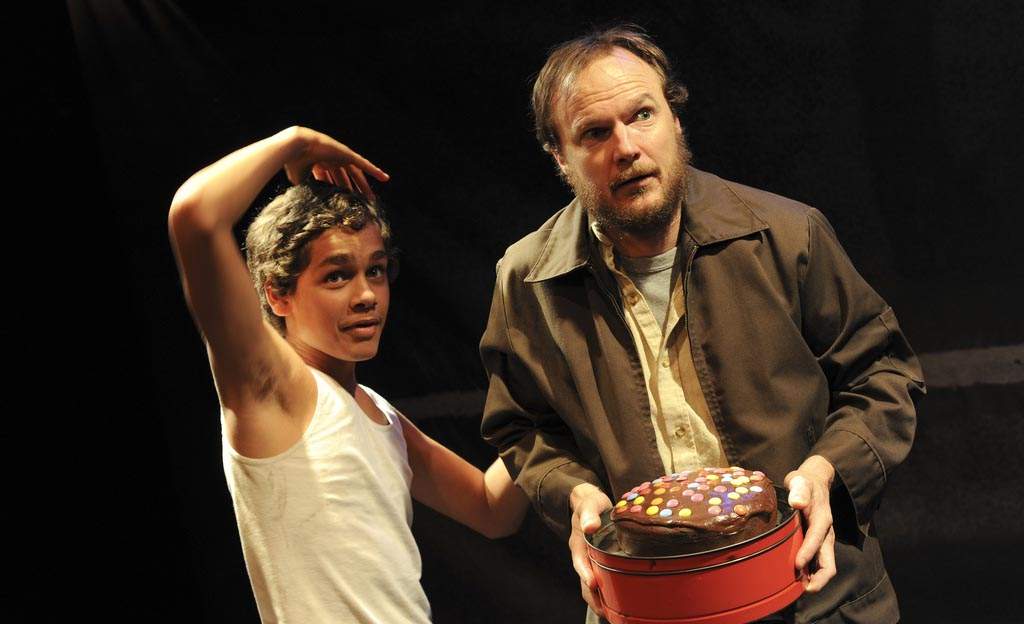The Cake Man – Yirra Yaakin Theatre Co and Belvoir
As potent for its historical significance as for its tragic yet poetic portrait of European paternalism.
Overview
p>When playwright Robert J Merritt first saw his script The Cake Man performed, he was wearing handcuffs. An inmate of Long Bay jail at the time, he had been let out for opening night, on the condition that he did not stray from the watchful eye of police guard. The entire script had been written in incarceration.
The Cake Man is as potent for its historical significance as it is for its tragic yet poetic portrait of European paternalism from an Aboriginal perspective. It was the very first full-length stage production presented by the National Black Theatre, which, in 1975, moved into a run-down Redfern terrace with a mission: to deliver hard-hitting Indigenous theatre.
The Cake Man's menacing opening scenes are a fitting starting point for the realisation of such a vision. A group of black dolls crowds around a humpy representing a simplistic, Eurocentric portrait of life in 'terra nullius' only to be interrupted by three white missionaries. The condescending preaching of so-called 'Enlightenment' ends in a brutal murder by rifle.
We leap forward in time into the world of an Aboriginal family, living on a mission in Cowra, where poverty and the delusion of affluent, urban dreams are the consequences of invasion. While Sweet William (Luke Carroll) grapples with alcohol addiction, his strong but misguided wife Ruby (Irma Woods) seeks consolation in the Bible and his son, Pumpkinhead (a rather charming James Slee), engages in petty theft.
Director Kyle J. Morrison handles the script deftly, emphasising the dynamic created by the interspersing of rich monologues with domestic drama. The writing, though slightly laboured from time to time, is at its strongest when in full poetic flight, interweaving psychological struggles with natural and mythical imagery.
Carroll delivers a particularly charismatic and powerful performance, displaying impeccable timing for both tragic and comic impact. "It's not that I just want my culture back. It's not as simple as that," he explains, the script acknowledging that coming to terms with contact history cannot be articulated in platitudes but involves a complex struggle philosophical, emotional and temporal between two competing realities.
Stephen Curtis's set, subtly lit by Jenny Vila, is rustic and sparse, comprised of wood and metal furniture. It's a convincing interpretation of context that keeps a burning focus on the human drama.
This production a collaboration between Belvoir and Yirra Yaakin Theatre Company is evidence of The Cake Man's ability to resonate in the 21st century: a moving, disturbing unravelling of irretrievable loss not devoid of a glimmer of hope.
Image by Heidrun Lohr.





